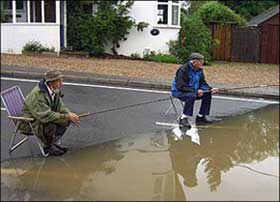
Most of you have seen the movie entitled, “The Help.” It’s a look at life in Jackson, Mississippi back in the early 60’s when racial division and inequality were most evident in the lives of the citizens of that community. I’ve watched it several times and I am sadly reminded of a time when so many people were marginalized and treated as if they were less-than-human. I guess part of what saddens me is that much of the division and inequality between races remains still.
In the movie, an African-American maid and nanny named Aibileen Clark, played by Viola Davis, helps to raise a young white girl named Mae Mobley, played by Eleanor Henry. In her role as a nurturing care-giver, Aibileen attempts to speak encouragement, value and worth into the life of the young girl by having her repeat several phrases along with her. “You is smart, you is kind, you is important.” Twice in the movie the exchange between the two is shown. As you watch each scene you get a sense of how important it is to both of them to instill and receive those words of affirmation. (https://youtu.be/3H50llsHm3k)
Earlier this week I participated in a seminar devoted to the topic of “The Role of Faith & Mental Health.” Dr. Steven Scoggin of Wake Forest Baptist Health was the presenter. Dr. Scoggin spoke about the bio-psycho-social factors that affect the health and well-being of every human. He spoke about the value and importance of community indicating that a child raised in social isolation will suffer life-long health concerns equally damaging as problems brought about in the life of someone who is a life-long smoker. In other words, emotional health and words of affirmation go a long way in bringing wellness to someone’s life. Of the 40 million American adults who will suffer from mental health issues this year, many of them could be greatly helped by encountering people who are kind to them and who listen to them. In fact, people who are compassionate, kind, and non-judgmental bring a healthcare dimension to a patient suffering with mental health issues, equal to that of a physician’s visit. Remarkable, right? Research has shown that whenever someone encounters a person who is kind and listening, there is a reaction that physically changes the brain of the sufferer. Have you ever noticed that certain people seem to always make you feel better? It’s because their compassion and grace actually cause your brain to think and feel differently.
So let’s zero in on children’s health for a moment. One of the most important things you can do as an adult is to speak words of affirmation and encouragement to the children under your care. How they view themselves, how they see the world around them, and even their mental health can be greatly affected by your words of affirmation. I was fortunate as a child. I grew up in a household where I was encouraged, loved, and affirmed. I’m not naïve enough to think that the same scenario happens in every family. Maybe your experience was quite different. Maybe you were not affirmed or encouraged. Maybe no one spoke worth into your life. And God forbid, maybe you were emotionally and physically abused. I pray that you can learn from your experience and refuse to continue the devastating cycle into the next generation. That takes courage.
The world is a dangerous place. There are plenty of negative influences waiting to damage the health and well-being of your children. You have to make the difference. Invest the time and energy it takes to be present in the life of your children. Read to them. Play with them. Encourage them. Love them. Speak worth and value into their lives. Remind them over and over again that they are smart, kind, and important.

